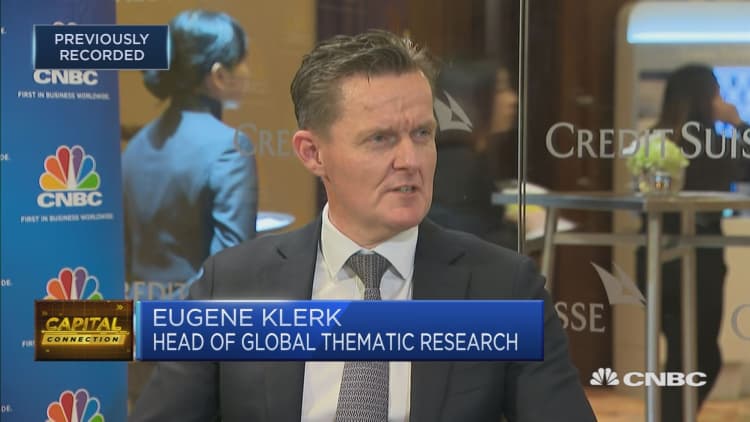
Brazil has just overtaken China in terms of consumer sentiment, as the world's second-largest economy slows down and spending intention on big ticket items decline, according to a Credit Suisse survey released Monday.
Speaking to CNBC at the Credit Suisse Asian Investment Conference in Hong Kong on Monday, Eugene Klerk, the bank's managing director of global thematic research said China showed weaker readings in spending intentions compared to Brazil and India.
The Credit Suisse Emerging Consumer survey, released Monday at the conference, found that China now sits at third place in terms of overall consumer sentiment, with India and Brazil at first and second place respectively.
"If we look at the data this year, we find consumers particularly optimistic in India and we also find consumers in Brazil becoming a lot more optimistic," Klerk said. "We see a different picture is in China."
The survey interviewed consumers face-to-face across eight emerging economies: namely China, India, Brazil, Indonesia, Mexico, Thailand, Russia and Turkey.
Durable goods — such as cars and luxury items — were most affected by the decline in consumer sentiment, the survey found. The bank, however, still sees "structural growth" in local goods and brands.
Klerk said he believes this decline in spending on durable goods is "cyclical" in nature.
"The theme of the emerging consumer has always been seen as a very structural one," Klerk explained. "This year's survey suggests that maybe the emerging consumer is slightly more cyclical than we thought he or she would be."
The decline in spending intention across a range of luxury items, he said, suggests the narrative is "more of an economic headwinds story rather than a conscious decision to stop spending money on cars."
China's $13 trillion economy has been slowing, and the ongoing trade war with the U.S. has only aggravated the slowdown.
Beijing has lowered its economic growth target to between 6 percent and 6.5 percent for 2019. That's compared to last year's expansion of 6.6 percent, which marked the country's slowest pace of growth since 1990.




